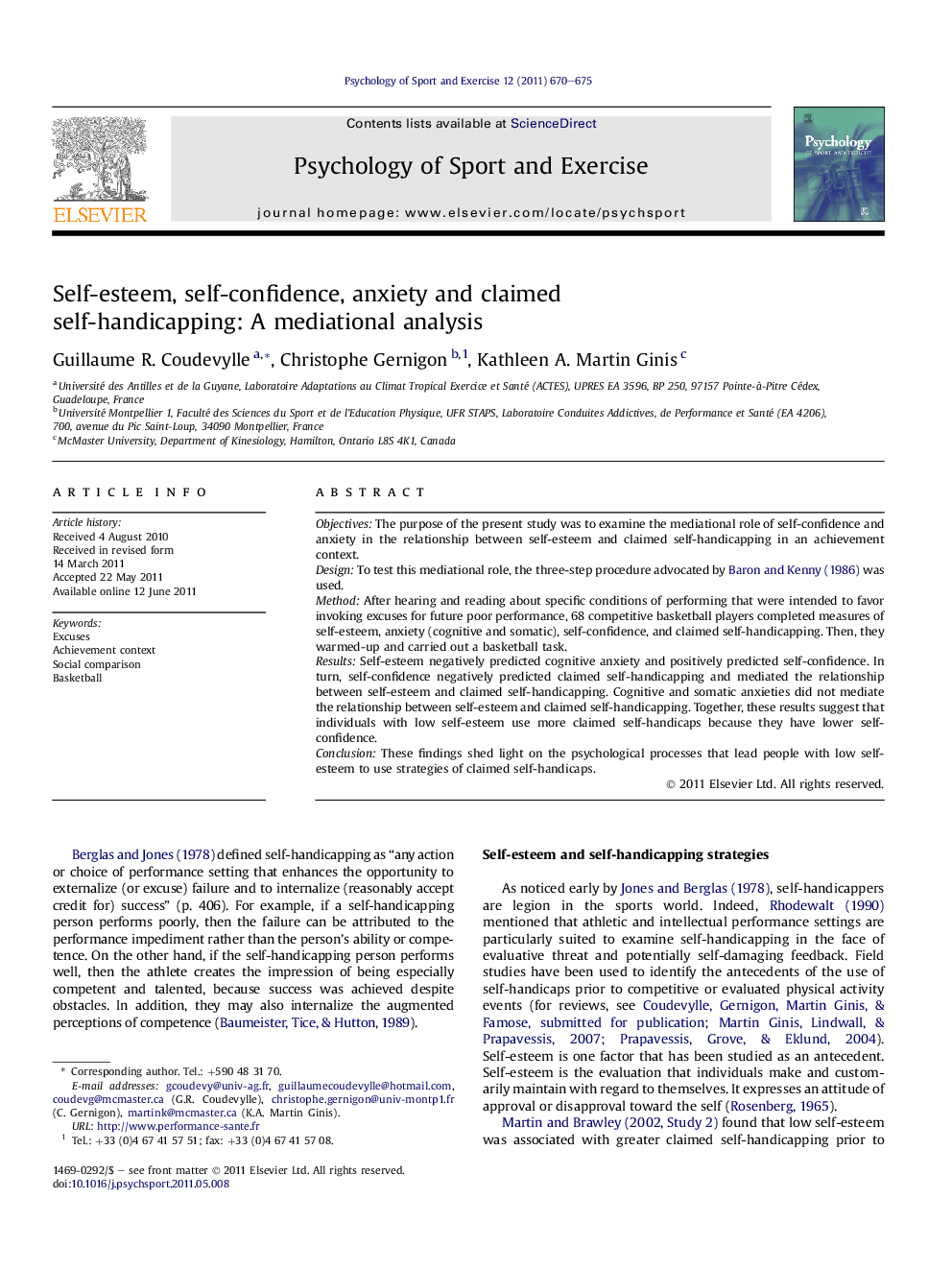| کد مقاله | کد نشریه | سال انتشار | مقاله انگلیسی | نسخه تمام متن |
|---|---|---|---|---|
| 894446 | 1472132 | 2011 | 6 صفحه PDF | دانلود رایگان |

ObjectivesThe purpose of the present study was to examine the mediational role of self-confidence and anxiety in the relationship between self-esteem and claimed self-handicapping in an achievement context.DesignTo test this mediational role, the three-step procedure advocated by Baron and Kenny (1986) was used.MethodAfter hearing and reading about specific conditions of performing that were intended to favor invoking excuses for future poor performance, 68 competitive basketball players completed measures of self-esteem, anxiety (cognitive and somatic), self-confidence, and claimed self-handicapping. Then, they warmed-up and carried out a basketball task.ResultsSelf-esteem negatively predicted cognitive anxiety and positively predicted self-confidence. In turn, self-confidence negatively predicted claimed self-handicapping and mediated the relationship between self-esteem and claimed self-handicapping. Cognitive and somatic anxieties did not mediate the relationship between self-esteem and claimed self-handicapping. Together, these results suggest that individuals with low self-esteem use more claimed self-handicaps because they have lower self-confidence.ConclusionThese findings shed light on the psychological processes that lead people with low self-esteem to use strategies of claimed self-handicaps.
► Self-esteem negatively predicted cognitive anxiety and positively predicted self-confidence.
► Self-confidence negatively predicted claimed self-handicapping.
► Self-confidence mediated the relationship between self-esteem and claimed self-handicapping.
► Individuals with low self-esteem use more claimed self-handicaps because they have lower self-confidence.
Journal: Psychology of Sport and Exercise - Volume 12, Issue 6, November 2011, Pages 670–675